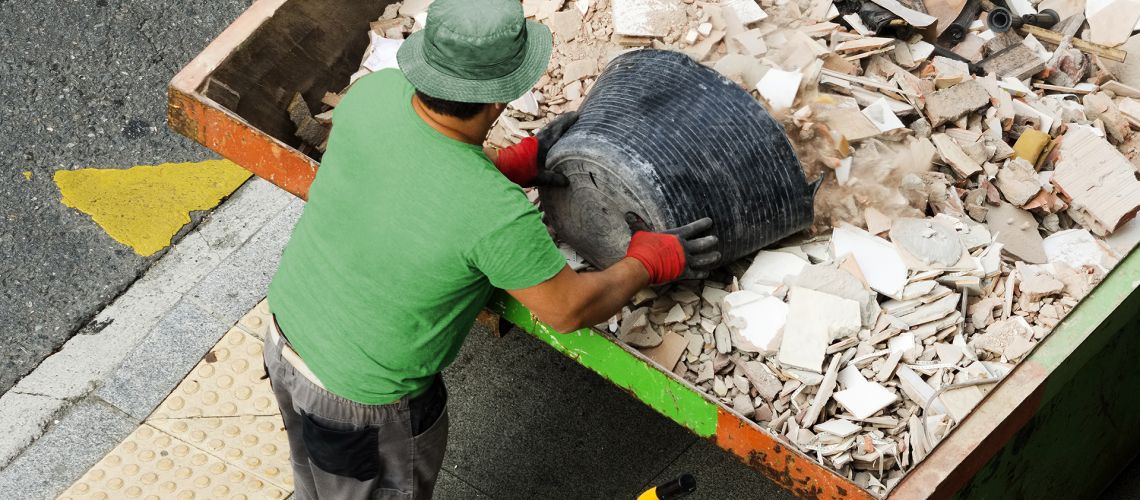When people have stuff they want to get rid of – old furniture, defunct electricals, garden waste, or even just plain old rubbish – and they can’t be bothered to dispose of it correctly, they might instead decide to just leave it on some out-of-the-way patch of land. Then it’s someone else’s problem.
This is fly tipping. It’s illegal, and it’s a much more serious issue than many people seem to think.
Fly Tipping in Numbers
- In 2014/2015, local authorities in England dealt with some 900,000 incidents of fly tipping, which is a 5.6% increase on numbers from the previous year. What’s more, over 60% of fly tipping incidents involved household waste.
- 48% of fly tipping took place on public highways, and 28% took place on footpaths, bridleways, and back alleys. So not only is fly tipping irresponsible and environmentally unfriendly, it’s also a public nuisance.
- And it’s expensive. In 2014/2015, local authorities in England spent nearly £50m on clearing fly tipping. That’s an increase on 11% compared to the previous year. What’s more, authorities spent £17.6m on enforcement actions.
- So fly tipping is a serious problem that’s only getting worse.
Why Do People Fly Tip?
If you’re caught fly tipping you face a £5,000 fine, and over 98% of fly tipping prosecutions result in a conviction.
As we’ll discuss below, there are plenty of affordable waste disposal solutions available to anyone in the UK. So if the risks are so high and the alternative so widely available, why do people still choose to fly tip?
According to the Bedford Borough Council, most people fly tip to avoid paying for the disposal of their waste.
Your council tax already pays for the collection and disposal of household rubbish, but it doesn’t cover other types of waste. So if you’ve got something unusual to dispose of, or even a particularly large volume of house or garden waste, you’ll have to pay for its collection yourself.
When people don’t want to pay for this collection, they’ll resort to fly tipping.
This is no excuse. Waste collection is hardly going to break the bank, and whatever you pay, it’ll definitely be cheaper than the hefty fine you’ll face if caught fly tipping.
Alternatives to Fly Tipping
Or, how to correctly dispose of your waste:
1. Arrange for a Collection
Your local council can collect most types of waste. They will charge you, and the amount you pay will be known as a “landfill tax”. You’re essentially paying to send your waste to a landfill.
A cleaner and greener arrangement is to have your waste collected by an independent third party waste management specialist. There will be one in your local area, and they send very little to landfill.
Indeed, some of these waste management specialists are capable of recycling more than 90% of the waste they receive.
2. Go to the Tip
Depending on where you live, a trip to the tip might not cost you a penny.
Some councils will allow you to dispose of certain items for free:
- Car batteries
- Electrical items, fridges, freezers,
- Lightbulbs and fluorescent tubes
- Garden waste
- Fridges, freezers, and furniture
- Scrap metal
- Timber
- Glass
You might have to pay a small fee to dispose of some items – but again, anything you pay is bound to be cheaper than the fine you’d pay for fly tipping.
The only downside is that, in some cases, disposing of your items at these places means that you’re literally tossing your waste onto a landfill. Adding to a landfill is still preferable to fly tipping, though.
But if you want to take the greener approach, take the time to find your nearest recycling centre. Let them know what you need disposing, and they’ll tell you if they’re able to take it.
Finally, you can use the Freecycle site to find willing recipients online.
So you see, if you’ve got stuff that needs getting rid of, there are plenty of options out there, some of which won’t cost you at all.
So there’s no excuse for fly tipping. It’s a mug’s game that costs millions, that presents a very real risk, and if you’re caught, it will cost you dearly. If you’ve got some waste that you want removing, then find out more about our waste management service, as we may be able to help.
3. Donate
Obviously, this one won’t apply to all household waste. But if you’ve got some old furniture or electrical items that you no longer need, and if they’re still of an acceptable quality and in good working order, why not just give them away?
There’s likely to be someone out there who needs the stuff you’re throwing away. And you’d be amazed by how many perfectly good items end up abandoned at tips and on roadsides.
So ask your friends or family, and if you don’t have any takers, contact a charity. The British Heart Foundation run a free furniture collection service, for example.
How to Dispose of Waste Properly
Make sure you get your waste collected by a licenced company, which holds all the right certification. Hire a skip from Enva to help reduce fly tipping in the UK.
Order a Skip

